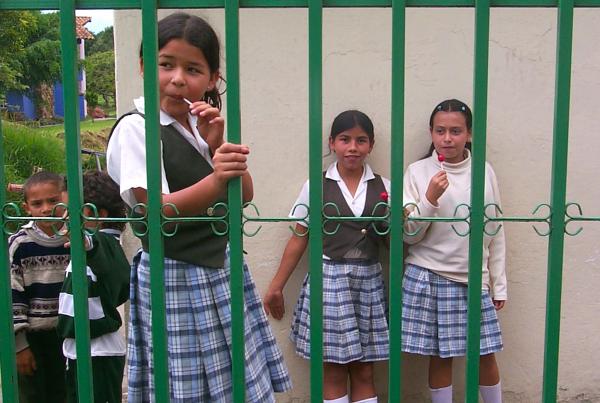Language is a very important factor when considering moving abroad. Sure, many people in foreign countries speak English—but many don’t. And it’s only polite to speak the native language of a country you’ve moved to, even if they can speak yours very well.
As my secondary school French teacher would tell you, I’m not a natural in picking up a new language. Although, with time, patience and perseverance, I will eventually get there. I might still have an English accent, and I might never be perfect, but I’m sure going to try.
So, when we decided we were making the move to Portugal, my husband and I were determined to learn the language. We signed up to a Portuguese class in a local university in the UK, but quickly discovered it was Brazilian Portuguese. Indeed, most classes outside of Portugal are not actually European Portuguese.
This initial learning still turned out to be very useful and in fact it was mostly a matter of learning some new pronunciations when we arrived in Portugal. However, there are some distinct differences. For example, we learnt the word cachorro for dog, yet arriving at our classes in Lisbon we were told the word was cão. In Portugal, cachorro is apparently only used for a hotdog. Not a mistake you want to make!
Of course, there are many different ways to learn, and each of us will have our own preference. I’m going to share some of my experiences with the different methods I’ve tried.
Classes
As I mentioned before, Classes outside of Portugal often Brazilian Portuguese rather than European Portuguese. I think this is fairly unique to this language, but it’s always worth checking when you sign-up in your home country.
Once we arrived in Portugal, we found that the free classes on offer have a waiting list. We ended up researching language schools online and picked one which suited our requirements best. We received our A1 certification in just four weeks. Personally, I found this “express” class too fast for me to take everything in, and next time I’m going to take a less intensive version.
In-person classes are great because with languages, face to face learning really makes a difference and it’s also a fun way to meet new people. Of course, there are lots of online classes too, which have their merits and you can easily find these online.
Language apps
Before we even signed up for a class in the UK, we’d downloaded the Duolingo app and used the free version. Again, we soon discovered this was Brazilian Portuguese. I actually found it difficult to locate many apps with the European language, and most of these required a paid subscription.
Having already earned an impressive “streak” of days in a row on Duolingo, I didn’t want to stop using it. I use it without listening exercises now, so I don’t confuse pronunciations, and when I spot a word or phrase used differently, it actually reminds me of the difference and it sticks in my head. Like that, it’s a good learning tool. I enjoy the rewards-based nature of it.
Talking with Portuguese friends
A fun and sociable way to practice is with your new Portuguese friends. We started playing games like Scrabble and Clue in Portuguese with a very patient friend (who of course wins at Scrabble every time).
It’s a fun way to learn new words and practice sentences without being too challenging. Sometimes we listen to conversations our friends have between them when we’re out, even if we can’t join in. It’s good to be surrounded by the sounds of the language you are trying to learn.
Watching TV
Another fun way to learn is watching TV in your new language, with your own mother-tongue on subtitles. Or, as we often do, watching Portuguese game shows with no subtitles (as we don’t have that option on some channels).
My husband has actually become quite addicted to the game show O preço certo, which is the Portuguese version of the North American show The Price is Right. Because the game is easy to understand, you can still watch and play along; it’s a great way for practicing your numbers.
Online videos
Besides online classes, there are several pages on Facebook which offer daily or weekly short videos teaching you a few basic words or aspects of Portuguese. I simply like these pages, and every time I see one in my feed, I watch it. They’re only a few minutes long at most, and are fun and easy. Every time I watch one, I learn something new.
Other resources
Of course, there are many other ways to learn, including the good ol' dependable book. I have these as a back up to my casual learning, and for the more serious aspects like verbs and exams. You have to find the way, or combination of ways that work best for you. With languages, it’s very personal and we all have different ways of learning that suit us.
Add this article to your reading list




